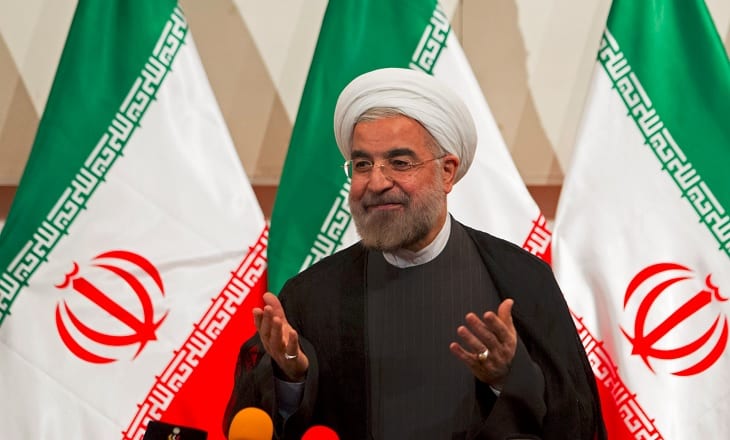The following article was written by Jameel Ahmad, VP of Corporate Development and Market Research at FXTM.

Jameel Ahmad, FXTM
Iran is sitting at the centre of a geopolitical maelstrom. Its alliance with beleaguered GCC member Qatar, June’s terrorist strike on its Parliament building in Tehran, and recent financial sanctions from the US, have all conspired to keep the country in a state of uncertainty. America’s President Trump has made no secret of his distrust of the nation, promising to put an end to the JCPOA (Joint Comprehensive Plan of Action) deal penned by predecessor Barack Obama. Throughout his campaign, Trump repeatedly described the accord – informally called the Iranian Nuclear Deal – as ‘The Worst Deal Ever’.
The JCPOA was agreed by the E3+3 countries, and effectively provided Iran with sanction relief, on the condition that they carried out key modifications to their nuclear development programme. Despite the agreement and evidence that Iran are complying with the conditions, Trump has imposed further non-nuclear and financial sanctions on the nation.
This is the setting against which President Hassan Rouhani will be inaugurated on August 5, 2017. Iran’s re-elected leader won the election by a convincing margin in May, and is about to be officially sworn into office again. With the latest wave of US sanctions still dominating the headlines, currency trading experts throughout the world are staring at forecasts and attempting to determine what, if any, impact this event will have on the markets.
“Oil and gas investors, in particular, are paying close attention to this event,” explains FXTM’s VP of Market Research, Jameel Ahmad. “President Hassan Rouhani has a reputation as a reformist, and he has been open about his intentions to promote the prosperity of the Iranian economy, bringing it back to pre-sanction health and increasing oil production. His landslide victory in May had an instant impact on the Tehran Stock Exchange, with the index finally recovering the 5% loss it had been experiencing since January.”
Foreign investors are likely to be more receptive to Rouhani’s inclusionist stance — a stark contrast to many of his contemporaries. Total, the French energy corporation, has already signalled its faith in Iran’s leadership, signing a multi-billion dollar deal with China’s Petroleum Company that will increase productivity in Iran’s South Pars Gas Field (the largest natural gas field in the world). But President Rouhani doesn’t intend to stop there. Sources at the Iranian Oil Co. are on record suggesting that the President intends to follow this milestone initiative with another ten such agreements before the Iranian year is out in March, 2018.
The impact on the Iranian (and wider global) economy could be reflected in forex trading markets over the next few weeks and months, although investor sentiment will likely be divided in light of the White House’s latest financial sanctions. Any new decisions or statements from OPEC are also likely to be keenly felt in the markets — the announcement of July’s extended production cuts and export curbs saw oil extend gains.
For the moment, much of the uncertainty surrounding Iran and the oil industry, and to some extent Rouhani, emanates from increasing geopolitical tensions. America’s new-found protectionist outlook and open contempt for the JCPOA, has put a question mark against its future, while Iran’s ties with Qatar, currently the subject of embargos by many neighbouring states, is a further concern for investors; and something even Rouhani’s new progressive Iran may struggle to overcome.
Disclaimer: The content in this article comprises personal opinions and ideas and should not be construed as containing personal and/or other investment advice and/or an offer of and/or solicitation for any transactions in financial instruments and/or a guarantee and/or prediction of future performance. FXTM, its affiliates, agents, directors, officers or employees do not guarantee the accuracy, validity, timeliness or completeness of any information or data made available and assume no liability as to any loss arising from any investment based on the same.
Risk Warning: There is a high level of risk involved with trading leveraged products such as forex and CFDs. You should not risk more than you can afford to lose, it is possible that you may lose more than your initial investment. You should not trade unless you fully understand the true extent of your exposure to the risk of loss. When trading, you must always take into consideration your level of experience. If the risks involved seem unclear to you, please seek independent financial advice.
